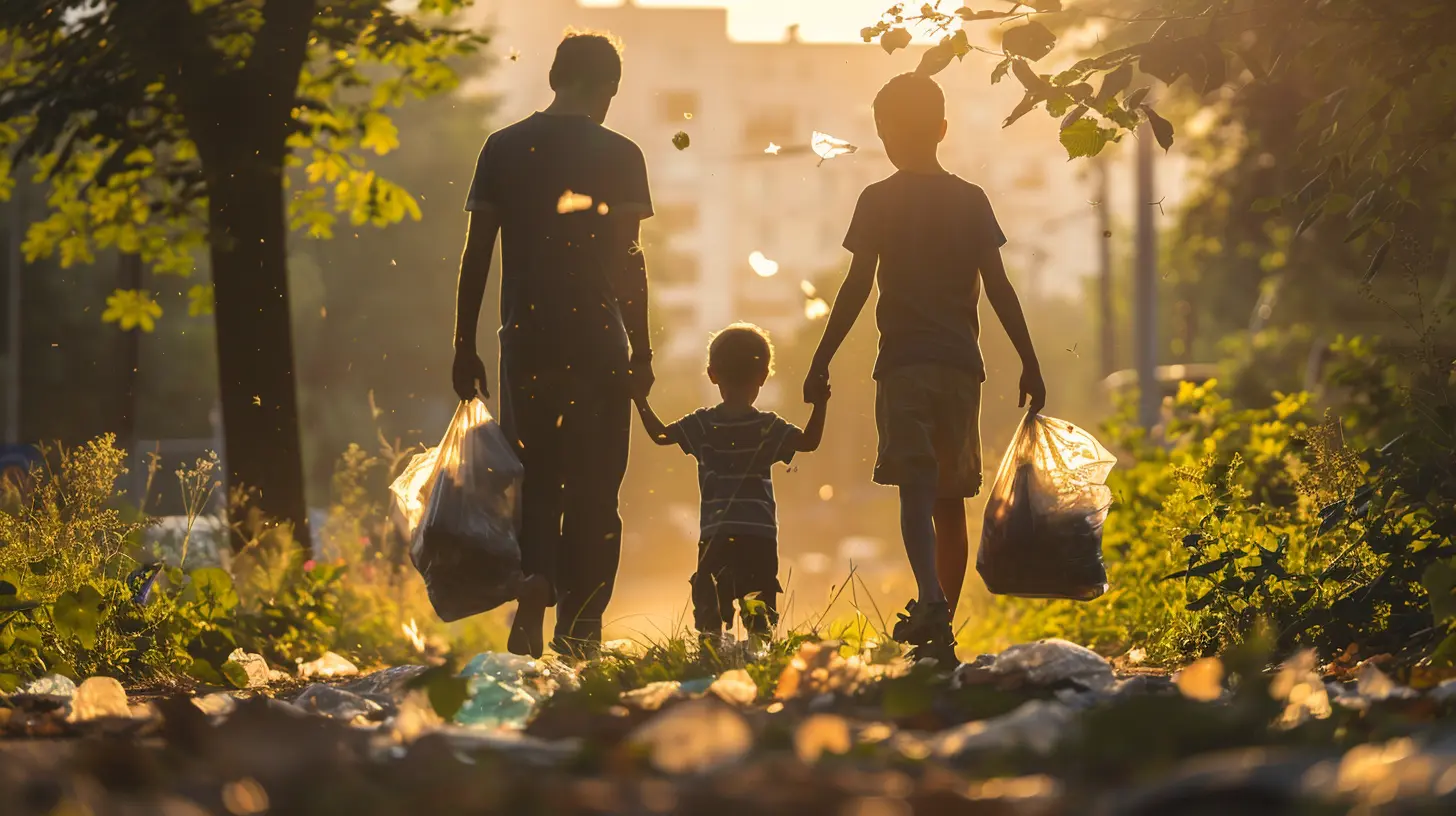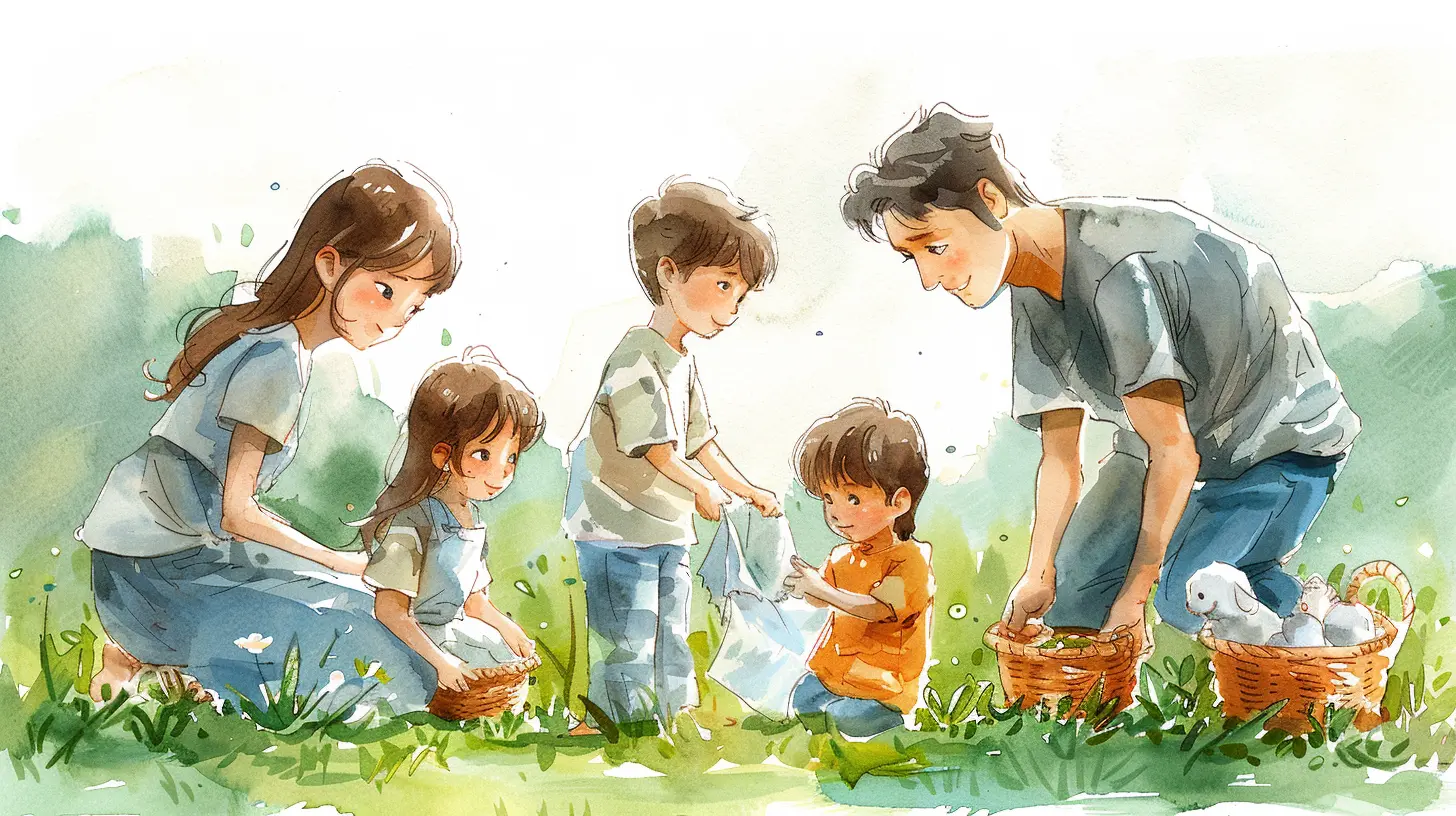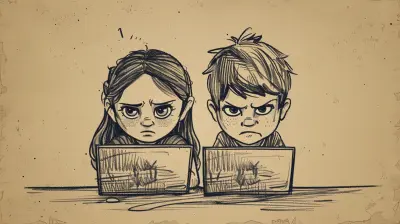Chores Beyond the Home: Community Involvement and Responsibility
19 May 2025
We all know the drill—kids groan when asked to do chores at home. But what if we expand their responsibilities beyond just taking out the trash or setting the dinner table? Teaching children about community involvement and responsibility outside the home is just as important as ensuring they clean up their bedrooms.
Raising socially conscious kids isn’t just about good manners; it’s about showing them how their actions can create positive ripples in their surroundings. Let’s dive into why giving back to the community should be a natural extension of their everyday responsibilities.

Why Community Chores Matter
1. Building a Sense of Purpose
Kids often ask, "Why do I have to do this?" when tackling household chores. The same question applies to community work. When they see the direct impact of their efforts—whether it's planting trees in a local park or helping out at a food shelter—they begin to understand that their actions matter.2. Instilling Empathy and Social Awareness
Through community activities, children get to step out of their comfort zones. They meet people from different backgrounds, see diverse struggles, and develop a greater sense of appreciation for what they have. This builds empathy and helps them understand that kindness extends beyond their home.3. Developing Leadership and Teamwork
Simple neighborhood tasks—like organizing a cleanup drive—teach kids valuable skills in teamwork and leadership. They learn how to communicate, delegate tasks, and work alongside others to achieve a common goal.4. Teaching Responsibility in a Bigger Context
At home, kids may tidy up because Mom and Dad say so. In a community setting, they learn that responsibility extends beyond their personal space. They begin to take ownership of their role in shaping their environment.
Ways Kids Can Get Involved in Community Chores
Okay, so we get why it’s important, but how do we actually get kids engaged? Here are some great ways to involve them in giving back:1. Neighborhood Cleanups
A simple but effective way to instill responsibility is by encouraging kids to participate in local cleanup drives. Whether it’s picking up litter in a park or helping clear debris after a storm, these small acts teach them that maintaining their surroundings is a shared duty.2. Helping the Elderly in the Community
Many elderly individuals struggle with daily tasks. Kids can help by running small errands, mowing lawns, or even just sitting down for a chat. It’s a win-win situation—children gain valuable wisdom, and seniors enjoy company and assistance.3. Animal Shelter Volunteering
For kids who love animals, volunteering at a local shelter is a fantastic option. Walking dogs, feeding rescued animals, or simply playing with them can make a significant difference in these animals’ lives.4. Community Gardens
Gardening teaches patience and responsibility. Many communities have shared gardens that need tending. Getting kids involved in watering plants, pulling weeds, and harvesting teaches them the value of hard work and sustainability.5. Helping at a Local Food Bank
Packing food for the needy gives kids firsthand experience in understanding social issues. It helps them appreciate the abundance in their own lives while developing a spirit of generosity.6. Creating Care Packages for the Homeless
A simple activity like assembling hygiene kits or snack bags for homeless individuals can teach compassion. It also provides an opportunity to discuss deeper societal issues with kids in a way they can understand.7. Participating in Fundraisers or Charity Events
Encourage kids to be part of fundraising events, whether it’s a bake sale, a fun run, or a donation drive. These activities teach organization, goal-setting, and the importance of collective effort.
How to Keep Kids Motivated
It’s one thing to introduce kids to community work—it’s another to keep them inspired and engaged. Here are a few hacks to make it stick:1. Make It Fun!
Volunteering shouldn’t feel like a punishment. Incorporate activities they love—play music during cleanups, turn tasks into friendly competitions, or offer small rewards for participation.2. Set an Example
Kids emulate what they see. If they notice you actively involved in community service, they’re more likely to follow suit. Participate with them and make it a family tradition.3. Let Them Choose
Giving kids a say in how they contribute increases their enthusiasm. Ask them what community service activities interest them the most and allow them to take the lead.4. Highlight the Impact
Show them the difference they make. If they help clean a park, point out how beautiful it looks afterward. If they assist at a food drive, explain how many families they’ve helped. Seeing tangible results reinforces their sense of accomplishment.5. Encourage Reflection
After an activity, discuss their experience. How did it make them feel? What did they learn? Encouraging self-reflection helps solidify the lesson.
Making Community Chores a Habit
Teaching kids to be responsible in their community shouldn’t be a one-time thing. It should become a lifestyle. Here’s how to ensure community involvement grows into a lasting habit:1. Include It in Their Routine – Just like household chores, community responsibilities can be scheduled. Whether it’s volunteering once a month or participating in a yearly charity event, consistency is key.
2. Encourage School & Group Involvement – Many schools and youth organizations offer volunteer programs. Get kids involved in these to expose them to different opportunities.
3. Celebrate Efforts – Acknowledge their contributions with praise. Highlight their achievements within the family or even post about their work on social media to inspire others.
4. Keep Expanding Their Horizons – As they grow, introduce them to bigger initiatives, such as mentorship programs or activism for causes they care about.
Final Thoughts
Chores shouldn’t just be about making beds or washing dishes—kids should learn that responsibility extends beyond their front door. Engaging in community work helps shape them into compassionate, socially responsible individuals who understand their ability to make a difference.So next time your child complains about chores, tell them: “How about we do something bigger?” Who knows? They just might surprise you with their enthusiasm.
all images in this post were generated using AI tools
Category:
Chores For KidsAuthor:

Austin Wilcox
Discussion
rate this article
3 comments
Oliver McElhinney
Engaging children in community chores fosters a sense of responsibility and connection to their surroundings. By participating in local service projects, they learn valuable life skills while developing empathy and an understanding of the importance of contributing to society.
May 31, 2025 at 4:55 AM

Austin Wilcox
Thank you for highlighting the importance of community involvement in fostering responsibility and empathy in children. Engaging in local service projects truly enriches their understanding of societal contributions.
Candace McClain
Embracing community involvement teaches our children the value of responsibility beyond home. By engaging in local initiatives, they learn empathy, teamwork, and the joy of giving back. Let’s inspire our kids to make a difference—together, we can shape a brighter future for all!
May 21, 2025 at 3:49 AM

Austin Wilcox
Absolutely! Engaging in community initiatives instills crucial values in our children, helping them grow into responsible, empathetic individuals. Let’s continue to inspire their involvement and shape a brighter future together!
Jett McMillen
Engaging children in community chores fosters responsibility, empathy, and teamwork, essential skills that extend beyond the home environment.
May 19, 2025 at 5:03 PM

Austin Wilcox
Thank you for highlighting the importance of community chores! Engaging children in these activities indeed nurtures vital life skills that benefit both individuals and the community.



